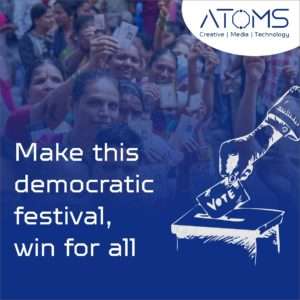Make this Democratic Festival Win for All

In a diverse and dynamic country like India, politics plays a central role in shaping the nation’s future. From heated debates to historic elections, the Indian political landscape is a complex web of ideologies, parties, and leaders. Let’s delve into some key aspects of Indian politics and how they impact the nation
Political Parties and Ideologies
Indian politics is characterized by a multitude of political parties representing various ideologies and interests. The two main national parties, the Bharatiya Janata Party (BJP) and the Indian National Congress (INC), have dominated the political scene for decades. While the BJP leans towards Hindu nationalism and conservative policies, the INC espouses secularism and a more liberal agenda. Additionally, regional parties play a significant role in states, addressing local issues and representing regional sentiments.
overnment and Governance
The Indian government operates within a democratic framework, with the Prime Minister as the head of government and the President as the head of state. The government comprises the executive, legislative, and judicial branches, each with distinct roles and responsibilities. The Indian Parliament, consisting of the Lok Sabha (House of the People) and the Rajya Sabha (Council of States), enacts laws and oversees governance at the national level.
Leadership and Key Figures
Prime Minister Narendra Modi, leader of the BJP, has emerged as a dominant figure in Indian politics, known for his charismatic leadership and ambitious reforms. His government’s initiatives, such as Make in India, Digital India, and Swachh Bharat Abhiyan, have aimed to transform the nation’s economy and infrastructure. On the other hand, the Congress party, led by Sonia Gandhi and Rahul Gandhi, continues to champion the principles of secularism and social justice.
Elections and Voting:Elections are a cornerstone of Indian democracy, providing citizens with the opportunity to elect their representatives at the local, state, and national levels. Election Day is a crucial event in Indian politics, with millions of voters exercising their right to vote. Political parties engage in extensive campaigning, utilizing various strategies to mobilize support and sway public opinion. The electoral process is governed by the Election Commission of India, ensuring free and fair elections across the country.
hallenges and Opportunities: Despite its vibrant democracy, Indian politics faces numerous challenges, including corruption, communalism, and regional disparities. However, there are also opportunities for progress and development, with advancements in technology and governance reshaping the political landscape. As India continues its journey towards becoming a global superpower, the role of politics in driving inclusive growth and social cohesion remains paramount.
Indian politics is a fascinating tapestry of diverse ideologies, leaders, and movements. By understanding its intricacies and complexities, we can actively engage in shaping the future of our nation and building a more prosperous and inclusive society. So, let’s stay informed, participate in the democratic process, and work towards a brighter tomorrow for India.
